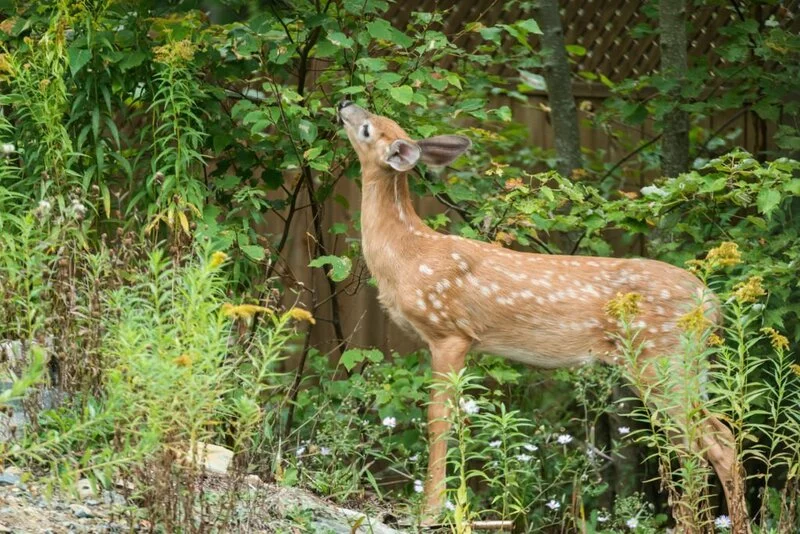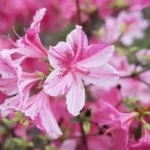Ah, the deer – elegant, graceful, and often a charming sight from a distance. But ask any gardener who has found their carefully-tended plants nibbled down to stubs, and they’ll tell you that deer can be a bit too fond of our gardens. With their voracious appetites, they can turn a lush garden into a stripped-bare landscape in no time. But what about onions? Do these beautiful creatures have an appetite for them as well? Let’s find out.
- 🧅 Fantastic addition to your home garden! Plant produces extra jumbo size white onions. Bulbs are very mild and have golden brown skin. The Yellow Sweet Spanish onion is a very versatile vegetable. Bulbs can weigh up to a pound. Fairly good onion to be stored.
- ☀️ Type: Annual – Sun: Full – Planting Depth: 1/4” – Spacing: 4”
- 💦 Water: Moderate – Days to Maturity/Bloom: 115 days – Height: 8-12”
- 🧅 Plant onions as soon as the ground can be worked in the spring, usually late March or April. Make sure temperature doesn’t go below 20 degrees F. For sets or transplants, plant the smaller sets 1 inch deep, with 4 to 5 inches between each plant and in rows 12 to 18 inches apart. Seeds are great for Planting in Garden or for storing in a seed safe for emergency.
- 🌱 Latin Name: Allium cepa,Type: Open Pollinated, Heirloom, Cool Season|Warm Season, USDA Zones: 3, 4, 5, 6, 7, 8, 9, 10, 11, 12
Deer Dietary Preferences
Deer are known to be opportunistic eaters. This means they’ll munch on just about anything when they’re hungry enough. From lush grasses to your favorite flowers, nothing is truly safe from a hungry deer. They have a particular fondness for new plant growth, fruits, and vegetables, making gardens a veritable smorgasbord for these creatures. But their culinary preferences aren’t solely determined by what tastes good. They also tend to avoid plants that are poisonous, have a strong odor, or a bitter taste.
Do Deer Eat Onions?
Now, to answer the burning question: Do deer eat onions? While it’s true that a hungry deer will eat almost anything, onions are generally not on their preferred menu. The reason for this lies in the onion’s defense mechanism. Onions, like their garlic relatives, contain compounds that give them a strong odor and flavor. This is nature’s way of protecting the plant from pests and, yes, hungry deer. So, while it’s not impossible for a deer to eat an onion, especially if food is scarce, they typically will bypass onions in favor of other, tastier options in your garden.
Protecting Onions from Deer
While onions are generally safe from deer, no plant is truly deer-proof. If food is scarce, even onions might be on the menu. To make your garden less attractive to deer, you can employ several strategies. One way is to fence your garden. Deer are excellent jumpers, so a height of at least 8 feet is recommended. Alternatively, you can use deer repellents available in the market. They’re usually made from ingredients that deer find unappetizing. Just remember, you’ll need to reapply them regularly, especially after rain.
- Mesh size 3/4 in. x 3/4 in.
- Green fence blends with most outdoor backgrounds
- Trim to size using utility knife or scissors
- Can be used to protect newly seeded lawns from digging animals
- Easy to assemble with T-posts or U-posts
Other Plants That Deer Tend to Avoid
In addition to onions, there are other plants that deer usually shy away from. These include strongly scented herbs like lavender, rosemary, and mint. Also, some flowering plants like marigolds, foxgloves, and poppies are less likely to be snacked on by deer. These plants can be a great addition to your garden not just for their deer-repelling properties, but also for their beauty and utility.
- Tiny, strongly aromatic & flavorful leaves, blue blooms
- Garden use: Herb garden, flower border, containers, low clipped hedge
- Culinary use: Italian & Mediterranean dishes, vinegars & oils, breads
- Plant in full sun for the best yields
- Plant during spring & fall
Conclusion
Deer can be a real headache for gardeners, but understanding their dietary preferences can help us protect our plants. While onions aren’t deer’s favorite snack, it’s good to be prepared with protective measures in case they decide to expand their culinary horizons. By incorporating plants that deer tend to avoid and employing strategies to deter these elegant yet voracious creatures, you can maintain a beautiful and healthy garden that coexists harmoniously with local wildlife.






